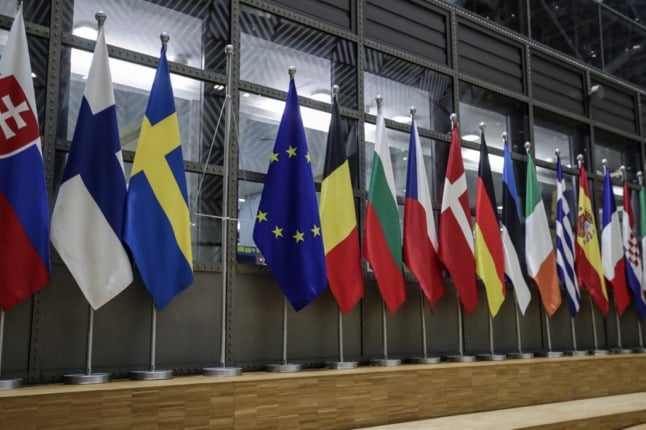If you are a citizen of a EU / EFTA state, then you can get either a permit B (resident foreign nationals) or C (settled foreign nationals) relatively hassle-free. That’s because Switzerland has signed the Free Movement of Persons agreement with the EU and EFTA countries, lifting restrictions on citizens of those nations wishing to live or work here.
In fact, out of 2.2 million foreign citizens who live in Switzerland, more than half — 1.4 million — came from the European Union, predominantly from neighbouring nations.
However, things get a lot more complicated for people from outside Europe — the so-called third countries — who want to settle in Switzerland.
Those who want to work are subject to a quota system. Each year, the Federal Council issues a certain number of work permits for non-EU citizens. In 2024 this figure was 8,500.
From this quota, 4,500 people were be granted a residence permit B, and the remaining 4,000 received a short-term residence permit L, entitling them to work in Switzerland for up to one year.
Swiss authorities are a bit more generous toward people from the UK: in 2024, 3,500 work authorisations (in addition to those grated to other third-nation citizens) were reserved especially for UK nationals — 2,100 B permits and 1,400 L permits.

But what happens if you are a third-country national who doesn’t want to work in Switzerland — just live here?
It depends on how wealthy you are.
As stated above, non-EU / EFTA nationals are subjected to more restrictive rules and regulations than their European counterparts.
However, the Swiss are very pragmatic people, especially when it comes to making money.
A little known (except to the financially astute) and rarely used Article 30 of the Federal Aliens Act sets out derogations from the regular, strict admission requirements.
It enables foreigners from outside Europe to move to Switzerland — but only if they are sufficiently wealthy to live here without having to work or resort to welfare benefits.
The law states that in cases of “important public interests” — that is, plenty of money in state coffers— cantons can grant citizens of third countries permissions to settle on their territories with a B residence permit.
READ MORE: How wealthy foreigners can ‘buy’ a Swiss residence permit
These are the so-called “golden visas”, a term used to describe residency based on investment in local economy.
So what does “sufficiently wealthy” actually mean in Switzerland?
Obviously, the sky’s the limit and the amounts depend on where in the country you want to live. But just as an indication, ‘buying’ your way into the residency permit in Geneva costs roughly 312,522 francs in tax revenue per year, 415,000 in Vaud, and 287,882 in Valais.
Add to this a fee you would have to pay a specialised relocation attorney — reportedly at least 50,000 francs — to negotiate a lump-sum tax agreement for you with authorities of the canton where you would like to live.
One thing to keep in mind is that money alone can’t buy you a golden visa.
The law also stipulates that you “must not pose a threat to public security and order or to Switzerland’s international relations”.
Additionally, all foreign nationals living in Switzerland — rich and poor alike — must purchase compulsory health insurance coverage.
READ MORE: ‘Golden visas’: How multi-millionaires are ‘buying’ Swiss residency permits
Why do wealthy foreigners want to live in Switzerland?
While it is true that lots of money allows you to live well almost anywhere in the world, The Local previously reported that “well-heeled people want to move away from developing nations to safer and more prosperous locations”.
“Switzerland is the Rolls-Royce of destinations”, said Enzo Caputo, a Zurich lawyer specialising in permits and tax packages.
Another advantage of a B-permit is that it allows third-nation citizens to move freely throughout the Schengen area.
Who are the golden visa holders in Switzerland?
Every year, around 40 to 50 people get these visas, as reported by TagesAnzeiger, which used the numbers published by the State Secretariat for Migration (SEM)
A total of 352 foreigners with this special permit lived in Switzerland at the beginning of 2021. They came mostly from Russia, Saudi Arabia, the United States and Brazil. (Currently, Russians are no longer allowed to settle in Switzerland).
However, people from China are now making up the largest proportion of special-permit foreigners, according to SEM.
A total of 34 Chinese nationals came to settle in Switzerland in the last four years.
“Coincidence or not, this is occurring in parallel with the increasingly totalitarian course of the Beijing regime”, TagesAnzeiger said.
Cantons don’t release the identities of these wealthy foreigners, justifying the lack of information with data protection laws.
What is known about this select group of people is that most of them live in canton Geneva. Next are Ticino, followed by Vaud, Zug and Bern.
READ MORE: EXPLAINED: Everything you need to know about retiring in Switzerland



 Please whitelist us to continue reading.
Please whitelist us to continue reading.
Member comments